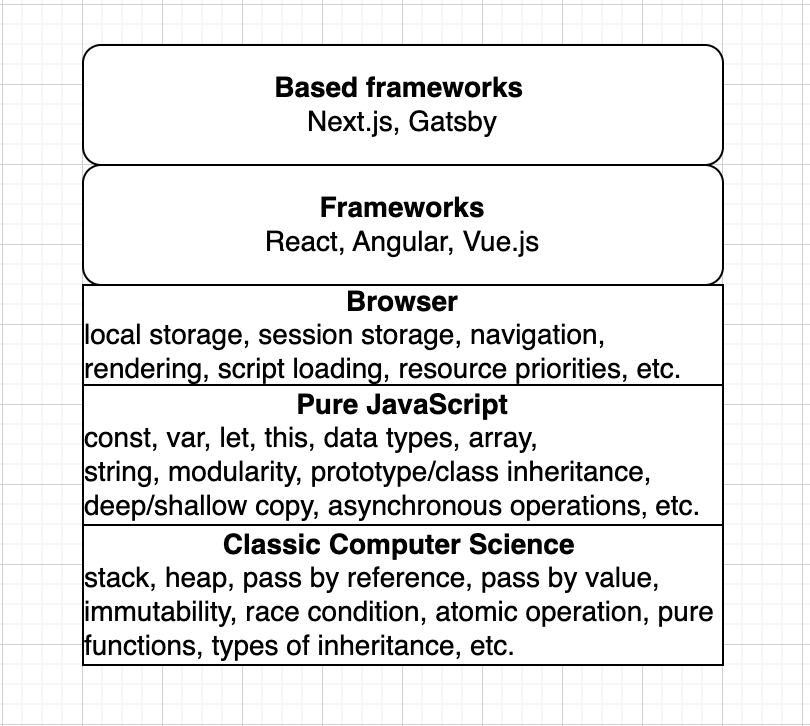Passing a lot of interview, that are related to JavaScript and a work as a frontend developer, I noticed that a lot of time during that interview has the questions about different frameworks - React or Angular, only a small part were about the pure JavaScript and were almost never Computer Science questions.
Working for the last 5 years as a full-stack developer, I passed more than 100 different technical interviews one way or another related to the frontend part and directly with JavaScript and different frameworks like React or Angular, and created on their basis - for example Next.js. I passed the interviews both for the local market - in my case - Ukrainian, and usually it was a first technical interview inside a company, and then a customer technical interview, and for the companies from USA and Europe directly.

If we look at a diagram I created then almost all interviewers asked me the questions related to the last two - top - sections. The questions from the JavaScript block take a little part of the interview and almost never ask from two other blocks - Browser and Classic Computer Science.
This is very strange for me comparing the interviews for backend developers which I passed and where I was asked classic Computer Science questions. From my point of view such an approach creates a deep gap between backend and frontend developers' level where the former are required to know what lies under the hood under what they do, and the latter only guesses about it. I very often see the developers who, for example, very well know how to work with React Router library or with routing in Angular but don't know how those components are built, which structures lie in the base of the navigation and which is a role of the web browser. Person who knows how the browser prioritizes the resource loading is a very valuable person on the market.
However I don't want to say that knowledge of the technology which is used on the project is not important. Vice versa - is important. But turning the interview process into just figuring out how to make a request to the server using, for example, React does not characterize the candidate as a programmer. This only gives us the answer to how well the candidate knows how to work with the tool that will be used on a daily basis on the project.
Also, I don't argue that knowing how this or that "component" in the framework used on the project works under the hood is not critical in order to sit down here and now and write working code and solve business problems. I do not even argue that such programmers are also needed for various projects. But, in my opinion, it is knowing how your working tool works under the hood that makes a programmer an expert in his field, someone who can and does make a difference for both the project and the business.